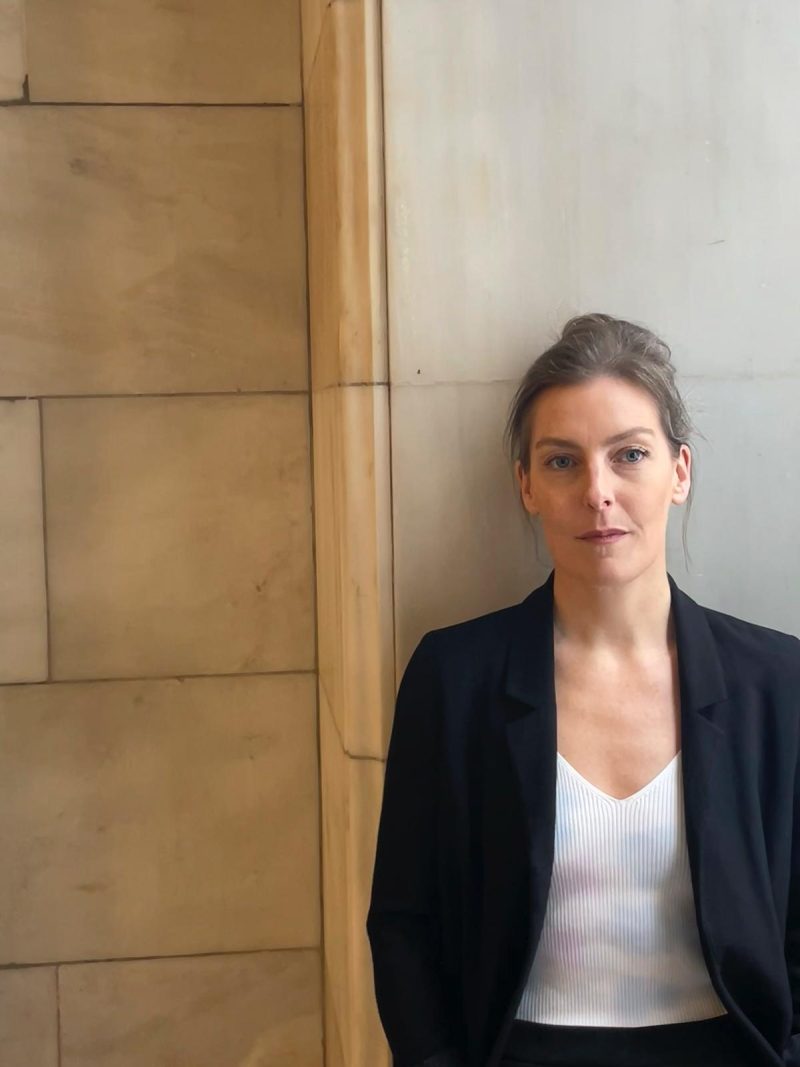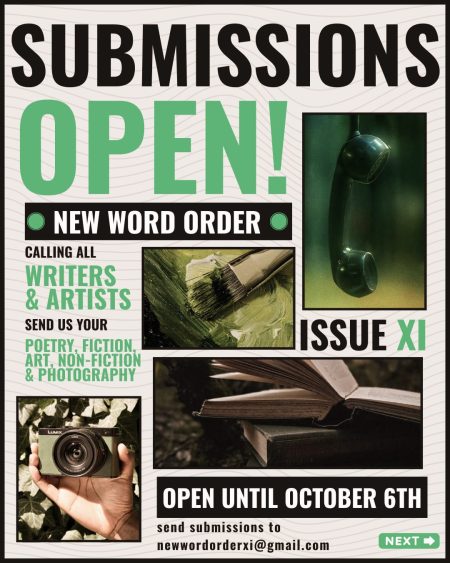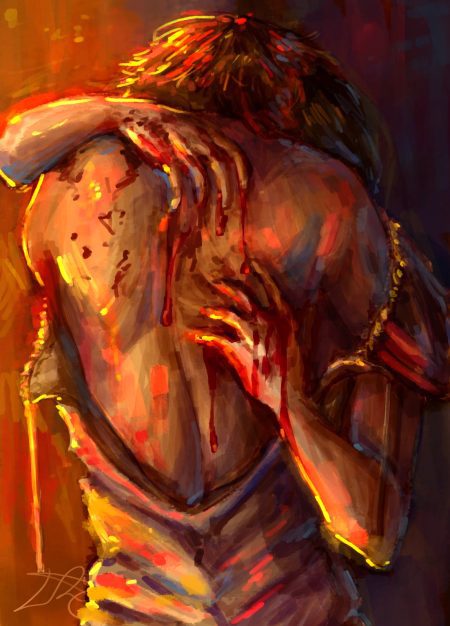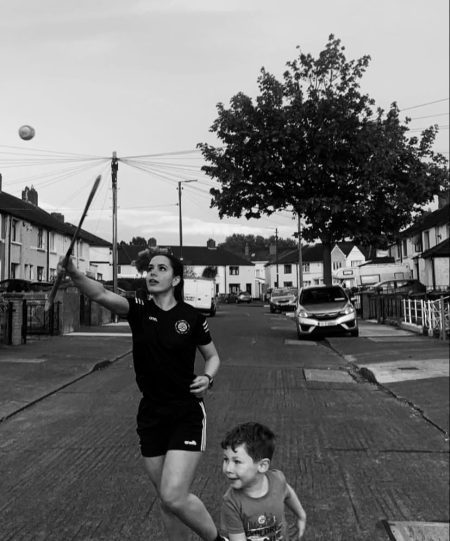Caoilinn Hughes is the author of Orchid & the Wasp (2018), The Wild Laughter (2020), and The Alternatives (2024). Her second novel won the Royal Society of Literature’s Encore Award and was long-listed for the Booker Prize. Francesca Giacomel, New Word Order’s Issue X interview editor, caught up with Hughes over email to discuss her transition from poetry to fiction, the creative value of rejection, and the influence of place on the writing process.
Francesca Giacomel: Is it safe to say that you started as a poet and then moved on to become a novelist? How do you find the difference in writing between the two forms? How does your poetic background influence your narrative techniques in novel writing?
Caoilinn Hughes: Yes, when I started writing, aged about ten, I began with poems, as far as I can recall. By my teens, I remember writing poetry quite consistently. That’s because I didn’t read fiction then—I read mostly poetry and plays, because I am a slow reader, and I preferred the pace of those slimmer, denser books, with so much left unsaid. I preferred how they rewarded a slower reader. That fact still effects what I like to read, as I prefer more gratifying prose, whether that comes from how the prose trusts the reader, or from its style and lyricism and imagery and exactitude.
As the years went by, I found my way to the novel form, first as a reader, then as a writer. I began to see that the distance between the two forms doesn’t need to be vast, and sometimes it isn’t. It was a matter of finding the right novels. So I got to fiction late, but it’s where I’ve lingered—both in novels and short stories. I only started taking fiction writing seriously—meaning writing enough to improve—in my mid-to-late 20s. Since then, I’ve been writing mostly fiction. I wrote several novels before I discovered the short story form, and fell in love. I have to admit, it’s my favourite form. The writing is more pleasurable than novel writing, because the discovery is more compressed and intense. Novels batter my heart and head and body, and I experience seemingly unsustainable bouts of doubt, but the last quarter of writing a novel makes up for all the heartbreak and cold-sores. Just about.
So in terms of how a background in poetry affects my prose, I assume the reader won’t want or need to be told something twice, that they don’t need me to state the obvious, meaning that each sentence moves the story or thought or scene or image along. The intention is to reward the reader rather than to strain them. It’s true that I ask a lot of the reader, but I hope that they experience the reward of having had a role to play in the realisation of the story, in the formulation of its deepest questions and themes.
Francesca Giacomel: A lot of us start as poets, scribbling in our notes apps or in the margins of notebooks. What would you say to someone who feels they have a knack for writing but doubts their ability to embark on a long project like a novel? Are there any specific strategies you used to transition from shorter forms to full-length novels?
Caoilinn Hughes: I’m very unstrategic! So I can’t help with specific strategies. But maybe it’s helpful to share that I didn’t decide to write one thing or another: what happened was that my reading tastes changed, and that had a knock-on effect. I think that’s healthy. It would be weird to want to write a novel if you don’t read novels! Which I didn’t, as a teen. Also, I moved around a lot, and I found that changing landscapes and cultural contexts forced me to write differently, in a way. As if I had to learn a new language for the new space. For example, when I moved to New Zealand in my twenties, I really struggled to write poetry. There were so many other changes going on in my life that I couldn’t be sure what the block was due to, but I just listened to the place and to my own instincts, and the tonal shift happening in my imagination, and felt the urge to write prose.
As if the longer form might help me to move through the landscape, into new terrain. I was very bad at it, and quickly learned that I’d need to write many tens of thousands of words before I had any hold of the tool at all. So I did that. I wrote and abandoned hundreds of thousands of words. That’s the graft of prose writing, and of finding your confidence. And you do need to find confidence to write in any genre. And I’d be wary of being confident off the bat! You sort of have to earn it, with yourself. It was never going to be the case that the first prose I wrote I’d want to share with the world. I gave myself the license to learn and to be bad, making a promise to myself to write at least one full novel that would be just for me. And it’s a hard thing to recommend to emerging writers. But … I believe in it. Because I couldn’t be more grateful to my younger self, for doing that. It meant that when I was ready to write the first novel that I hoped to share with people, I was writing the best novel that I could at the time, rather than just writing a novel. I was several novels in before I wrote my first short story. So I haven’t followed a typical journey there. I didn’t do an MFA so wasn’t really introduced to the short story until much later. Often, MFAs are where writers first discover that form.
Francesca Giacomel: You’ve published many poems and stories in different journals—how did you decide which pieces to send where? Did you rely on instinct or research? Did you write each poem or story in response to a literary prize prompt, or did you submit from your existing repertoire? How did you handle rejections, and what did you learn from the experience?
Caoilinn Hughes: I think you have to know a magazine to know what its editors might respond to. And generally if you find yourself buying a particular magazine again and again, it must be because you respond to the work in there. So that makes it much more likely that you and the editors’ tastes overlap. It doesn’t matter if that’s a teeny tiny magazine or a very well-known one: what matters is the match. Also, editors do change over time, so it’s worth revisiting magazines intermittently. The first venue to publish my fiction was a magazine I adored called Tin House. Unfortunately, it’s no longer being published, but they seemed to publish particularly “voicey” but quiet work – so I had some prose that (I had a hunch) they might like. It’s usually down to the luck of having an intern see the work and decide to share it with the editorial team. So you never know who your angel will be. But if you’re sending to the wrong venue for what you write (or for that particular piece), it’ll be tough going. My agent always gives the advice “go where the warmth is,” and that tenet has served me well. On your second question—no, I’ve never written in response to a prompt. That really wouldn’t work for my long-gestation method of writing. Finally, in terms of handling rejections, that is never easy! Drinks with friends…Avoid being alone in the immediate aftermath! I will say that the very best outcome of rejections for me has been that they have helped me to do better work. They raise the bar. I usually wind up very grateful for rejections, once some time has passed. Because I’ve then written something better. You always do, as long as you trust the process, put in the time, be receptive to the world, and don’t rush.
Francesca Giacomel: Your poetry has a prose-like quality—how did you develop a style that suits your writing?
Caoilinn Hughes: You’re asking about voice, I think? I’m not sure that style is the same as voice. Style changes from piece to piece—from chapter to chapter, verse to verse. Whereas voice is what exposes work to be your own. That might be some common sensibility, register, tone, worldview, sense of pace and pathos…where your eye tends to go, what makes you laugh, who you find worth spending time with. If that’s one definition of voice, then you’ll see that voice isn’t something that you decide upon or self-style. It is what you can’t help having!
You might wish (as I often do) to have someone else’s voice … but if I try not to have my voice, I will have none. And my writing will be empty or false. So every single thing you see and do and hear and read and witness and think about and feel and fail to understand; every single person you meet and underestimate and fall in love with; every bird and post-box and film and plastic bag stuck in a tree you notice … all of that comprises your voice. How you develop it on the page is by allowing yourself to try, and to fail, and to try again and fail better, to borrow Beckett’s voice.
Francesca Giacomel: One of the best exercises that pushed me to write some of my (in my opinion) best pieces was imitation poetry. Did you have a similar exercise you learned in college that has helped you immensely in your writing—something that always seems to work?
Caoilinn Hughes: No, because I never studied creative writing. I did one module at university in poetry, but besides that, my degrees were in literature. Reading was the key to my development as a writer. Reading creates new memories—full, visual, emotional, and irresolvable memories. Through reading, I get to have more than my own experiences. I get to have more than my capacity for change, wisdom, and humour. Writing offers the same benefits, only more so: a story or a novel enlarges my life.
Something that always seems to work is writing just one line and seeing if there’s any truth in it. Thinking about a vast tract of prose never helps. I like to know very, very little about what’s up ahead, where it might go. Just one line at a time, as specific as it can be. Never beating yourself up about how many hours you might need to spend to get one paragraph down in a way that feels true.
Francesca Giacomel: How much has Irish culture influenced you and your writing? And what about the New Zealand influence? Do you feel your writing is a mix of both, or did being far from home bring you closer to Ireland? How have specific cultural narratives or histories from Ireland and New Zealand shaped your storytelling?
Caoilinn Hughes: I’m afraid that I’d need to write a thesis to answer this question. And a therapist! I’ll just share the fact that, moving around as I have (I’ve also lived in the Netherlands, the US, Belfast, and London, with shorter stints elsewhere), I worried that my voice would end up being so diluted as to be neither one thing nor another. Not Irish anymore, not Kiwi, not even European … But that was a nonsense fear. (I think. I hope!) All different kinds of lives can be written about, all perspectives can be written from—with integrity and worthiness. If you never leave home, you will have a totally different set of experiences and anxieties and pathologies and quirks as someone who leaves, or someone who leaves and comes back. I personally am fraught with anxiety about the brevity of life, and how we only get to have one of them (I think!). That’s partly why I write: to cheat the system!



